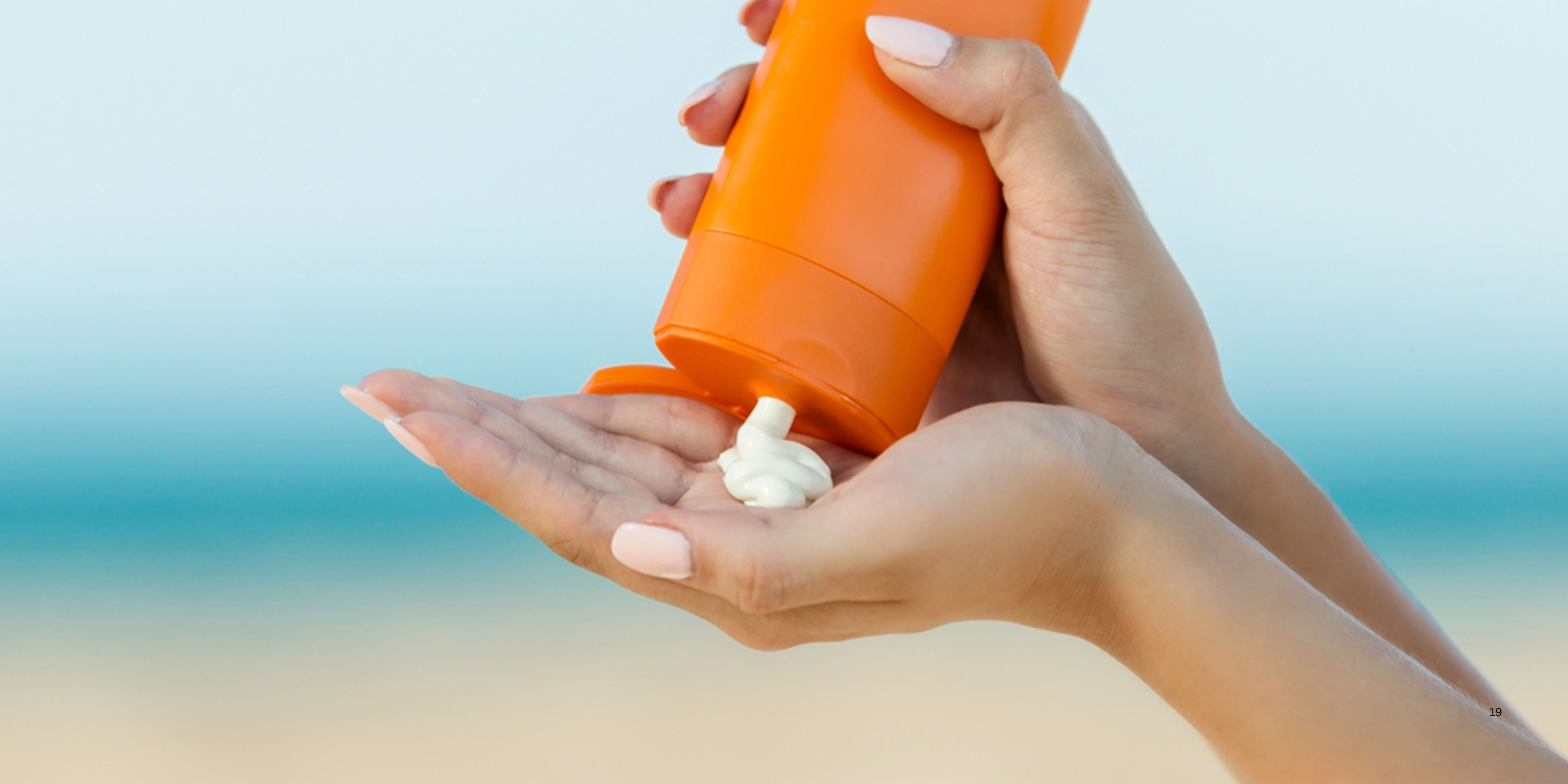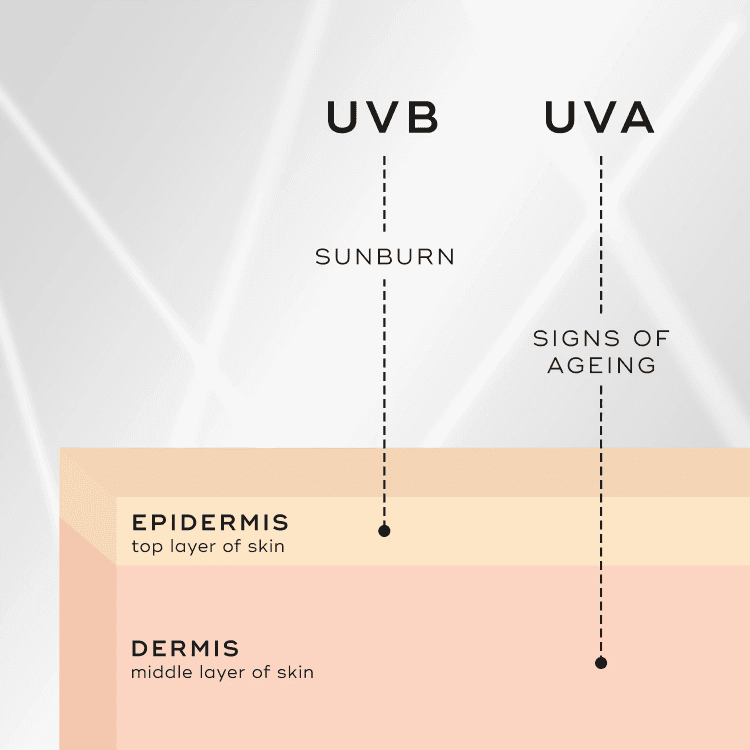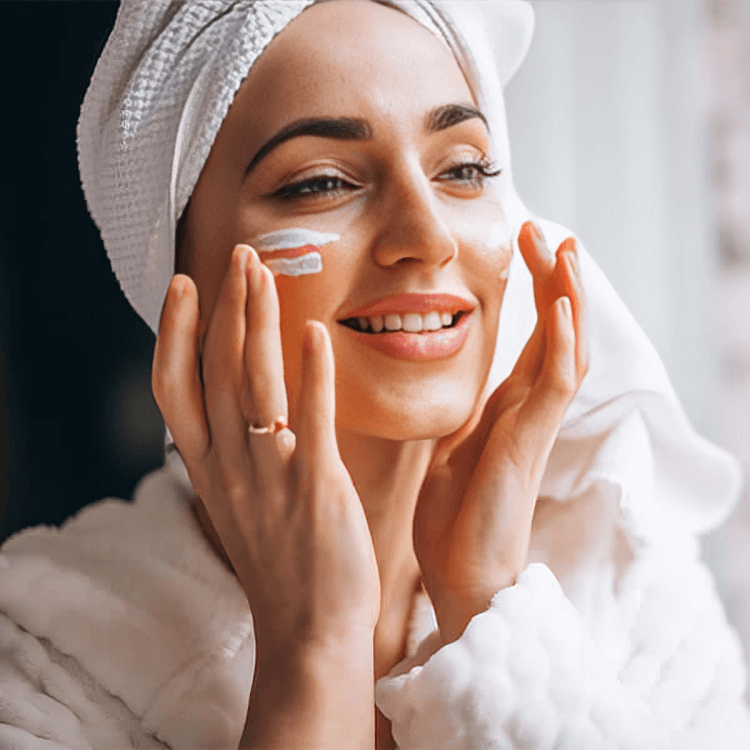
“
Sunscreen & skin cancer prevention are essential parts of skincare. With the increasing exposure to harmful UV rays, it's crucial to understand how sunscreen helps protect our skin. Sunscreen acts as a barrier, blocking harmful rays that can cause skin damage and increase the risk of skin cancer. Here are some essential facts about how sunscreen plays a key role in skin cancer prevention. 1
1
”
Sunscreen is vital for protecting skin from harmful UV rays, reducing the risk of skin cancer by blocking UVA and UVB radiation. Regular use prevents skin cell damage and mutations that can lead to cancer. 1
Using sunscreen prevents skin aging, like wrinkles and sunspots, by shielding skin from UV radiation. It reduces the chances of sun damage, promoting healthier, younger-looking skin over time. 2

Broad-spectrum sunscreens protect against both UVA and UVB rays, with UVA causing long-term damage and UVB causing sunburn. Always choose a broad-spectrum sunscreen for the best protection.
Sunscreen with SPF 30 or higher helps protect your skin from harmful UV rays, reducing the risk of skin cancers like melanoma and basal cell carcinoma when applied regularly and correctly.3
Reapply sunscreen every two hours, especially after swimming or sweating. Sunscreen wears off over time, so reapplication is key to maintaining effective protection against UV damage.4
UV rays can penetrate through clouds, meaning sunscreen is necessary even on cloudy days. Up to 80% of UV rays can still damage the skin, increasing the risk of skin cancer. 5

Apply sunscreen generously to all exposed skin, including often-missed areas like the ears, neck, and scalp. Consistent protection of every exposed area reduces the chances of skin cancer.
Apply sunscreen 15 to 30 minutes before sun exposure for optimal absorption and effectiveness. Immediate application may not provide full protection, leaving the skin vulnerable to UV damage. 6
Sunscreen prevents DNA mutations caused by UV radiation, which can lead to skin cancer. It helps protect skin cells from developing abnormal growths, lowering the risk of skin cancer. 7
SPF, or Sun Protection Factor, measures a sunscreen's ability to block UVB rays. SPF 30 blocks around 97% of UVB rays, providing solid protection for most people when applied properly. 8
Melanoma risk is higher with early, excessive sun exposure. Regular sunscreen use, especially in childhood, can significantly lower the chances of developing this aggressive form of skin cancer later in life. 9
Sunscreen prevents sunburns, which increase skin cancer risk. Frequent sunburns, especially in childhood, are strongly linked to an increased chance of developing melanoma in adulthood. 10
Water-resistant sunscreens maintain their effectiveness when swimming or sweating, but reapplication is necessary afterward. No sunscreen is entirely waterproof, so reapply regularly to ensure full protection.11
Sunscreen should be applied daily, even in winter or when indoors. UV rays can penetrate windows, so consistent protection year-round reduces the risk of developing skin cancer. 12
While darker skin provides some protection against UV rays, sunscreen is still essential for preventing skin damage and cancer. Everyone, regardless of skin tone, should use sunscreen regularly. 13
Sunscreen reduces the risk of precancerous lesions, which can develop into skin cancer. Preventing these lesions early on reduces the likelihood of progression to more severe skin cancer types. 14

Children’s skin is more sensitive and vulnerable to UV damage. Using sunscreen on children helps protect them from long-term skin damage and reduces their future skin cancer risk.
Always check the expiration date on sunscreen, as expired products lose their effectiveness. Most sunscreens last two to three years, and using expired products increases the risk of UV damage. 15
Sunscreen should be used alongside other protective measures like hats and sunglasses. Combining multiple forms of protection provides the most effective defense against harmful UV exposure. 16
Regular skin checks are essential for the early detection of skin cancer. While sunscreen helps protect, being aware of skin changes like new moles can lead to early diagnosis and treatment. 17


